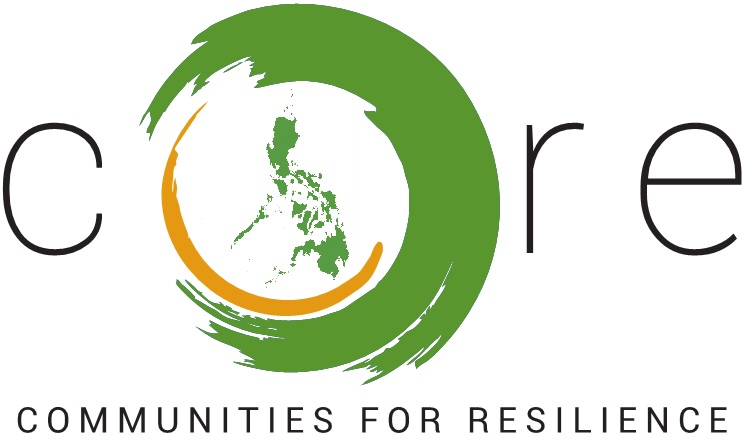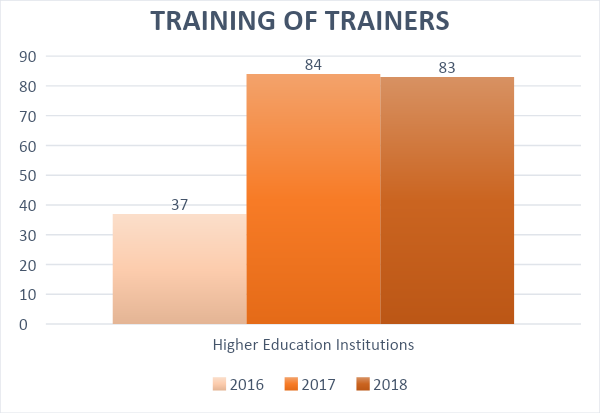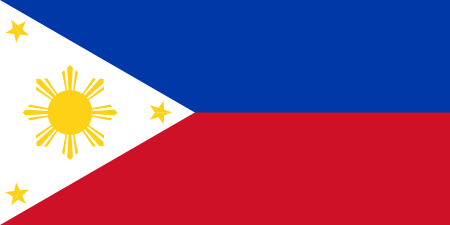

Efforts to defeat poverty and promote social justice will be challenging to sustain unless measures are undertaken to help the poor and highly vulnerable communities adapt to climate change.
Studies from the Philippine Atmospheric, Geophysical and Astronomical Services Administration (PAGASA) and the Intergovernmental Panel on Climate Change (IPCC) have shown that current and future shifts in temperature and rainfall regimes will have significant impacts, mostly adverse on agriculture, forestry, water and coastal resources, health, and urban areas. These have serious implications on our food and water security, energy sufficiency, human security, and ecological and environmental stability.
It is in this context that CCC’s Communities for Resilience (CORE): Capacity Building Training Program is conceptualized and implemented. The CORE Capacity Building Training Program incorporates the country’s National Framework Strategy on Climate Change 2010-2022, National Climate Change Action Plan 2011-2028, and National Disaster Risk Reduction Management Plan 2011-2018, as well as the post-2015 global frameworks for development, namely: the Sendai Framework for Disaster Risk Reduction 2015-2030; Sustainable Development Goals 2030; and the 2015 Paris Climate Agreement.
The CORE Capacity Building Training Program is being implemented through five modalities:
1. Enhanced Local Climate Change Action Plan
2. LCCAP Quality Assurance
3. Climate Resiliency Field School
4. Northern Panay Climate Change Consortium
5. Comprehensive Integrated Climate Adaptation and Resilience Program
Objectives:
.png)

C. Beneficiaries
Municipal Agricultural Officers and Agricultural Extension Workers
D. Convergence (Partnerships)
The Commission administered series of trainings in partnership with Rice Watch and Action Network (R1), DOST-PAGASA, attached bureaus and agencies of the Department of Agriculture like BFAR, PhilRice, and Philippine Crop Insurance, Corp (PCIC).
E. Outputs
For 2018, the Commission facilitated series of CRFS trainings participated by 125 LGUs from the provinces of Iloilo, Guimaras, Capiz, Aklan, Antique, Pangasinan, Tarlac, Bukidnon, and Misamis Oriental, whose primary source of livelihood is on agriculture.
For 2019, 31 participants from 17 LGUs attended the training held in Pandan, Antique.
A. Description
To further strengthen the collaboration among national government agencies, higher education institutions, and local government units towards mainstreaming climate change into local development plans, especially the development and enhancement of Local Climate Change Action Plans, a multi-stakeholder consortium will be established.
The Consortium is the implementation of Climate Change Commission’s Communities for Resilience Wave 3, wherein the trained HEIs extended technical assistance to LGUs for mainstreaming climate change into local plans. It also served as a platform for research and extension services of Higher Education Institutions, and a venue for Local Government Units to receive technical assistance and strengthen their capacity in developing and enhancing their local development plans.
B. Targets
In 2019, the Commission aimed to launch the Consortium and conducted a strategic action planning workshop to identify the succeeding steps of the Consortium in coordination with the Consortium members.
C. Beneficiaries
The primary goal of the Northern Panay Climate Change Consortium is to provide technical assistance for the enhancement of Local Climate Change Action Plans of the seventeen (17) Aklan LGUs and four (4) Antique LGUs namely Caluya, Libertad, Pandan, and Sebaste. Other provinces and LGUs may be included later on.
D. Convergence (Partnerships)
The Northern Panay Consortium was initially composed of representatives from the following offices:
1. Department of the Interior and Local Government Region VI
2. Commission on Higher Education Regional Office VI
3. Department of Agriculture VI
4. Department of Education Region VI
5. Aklan State University
6. University of Antique
7. Northwestern Visayas College
8. Provincial DILG
9. Provincial DepEd
10. Provincial DA
E. Outputs
On September 5, 2019, the Memorandum of Understanding of the Northern Panay Climate Change Consortium was ceremonially signed in Pandan, Antique.
A. Description
The activity was in a form of a round-table discussion, wherein the identified basic adaptations and mitigations of the IPs gathered through participatory process on the ground are presented and discussed and concerned agencies are expected to commit and participate based on their mandates that is anchored on the 7 thematic areas of the NCCAP.
B. Targets
The targeted participants are the fifteen (15) LGU-municipalities of Oriental Mindoro, including the province, represented by their Mayors and Municipal Planning and Development Officers (MPDOs), and the Provincial Planning and Development Officer (PPDO) of the province. The target date was Oct. 23, 2019.
C. Beneficiaries
The main goal of the program is to be able to get the commitments of partner agencies for the delivery of basic adaptation services anchored on the National Climate Change Action Plan (NCCAP) 7 thematic areas to indigenous peoples, Bangsamoro, and Urban Poor Communities aligned in their programs. This was conducted in October 2019, for the LGUs of Oriental Mindoro, and shall be expanded to other provinces later.
D. Convergence
The partner-agencies in the implementation are the following:
1. Office of Cabinet Secretary
2. Office of Deputy Speaker Loren Legarda
3. Department of Environment and Natural Resources (DENR)
4. National Commission on Indigenous Peoples (NCIP)
5. Department of Agriculture (DA)
6. National Solid Waste Management Commission
7. National Irrigation Administration (NIA)
8. Department of Tourism (DOT)
9. Department of Interior Local Government (DILG)
10. Department of Trade & Industry (DTI)
11. Department of Health (DOH)
12. Department of Education (DepEd)
13. Higher Education Institutions
14. Department of Energy (DOE)
15. Department of Science and Technology (DOST)
16. Department of Public Works and Highways (DPWH)
17. Philippine Bamboo Foundation
E. Outputs
For 2018, the Commission facilitated two CICARP events, one in Baguio City for four (4) Benguet LGUs, one (1) Nueva Vizcaya LGU, and one (1) Ifugao LGU as participants, and one in Davao City for the eleven (11) Compostela Valley (ComVal) IP municipalities, including the Province. The total number of participants were eighteen (18) from Baguio City, and a total of twenty (20) participants from the Davao City event, respectively.
The implementation of the CORE Capacity Building Program is pursuant to the Commission’s mandate to:
Specifically, the collaboration with national government agencies serves as a venue for the harmonization of policies and activities, dissemination of relevant climate information and services to captured audiences, and alignment of various initiatives to the National Climate Change Action Plan.
Local government units are provided technical assistance for the development and enhancement of their local climate change action plans. In-depth discussions and exercises on the execution of the Climate and Disaster Risk Assessment, eLCCAP process, greenhouse gas inventory, climate change expenditure tagging, and accessing the People’s Survival Fund are administered to enhance their capacity for climate-resilient planning.
Partners from the private sector are provided an opportunity to deliver activities under their social corporate social responsibility to areas identified by national government agencies as a contribution to social welfare development and nation-building.
6th Floor, First Residences Bldg.
1557 J.P. Laurel Street,
San Miguel, Manila
Philippines
Email: info@climate.gov.ph
Phone: (632) 8353 8494


All content is in the public domain unless otherwise stated
All content is in the public domain unless otherwise stated
All content is in the public domain unless otherwise stated
.jpg)